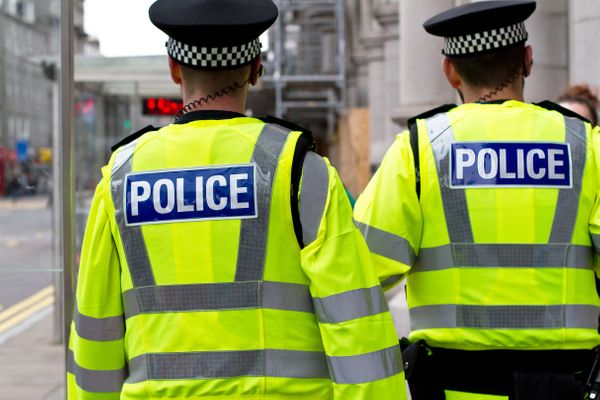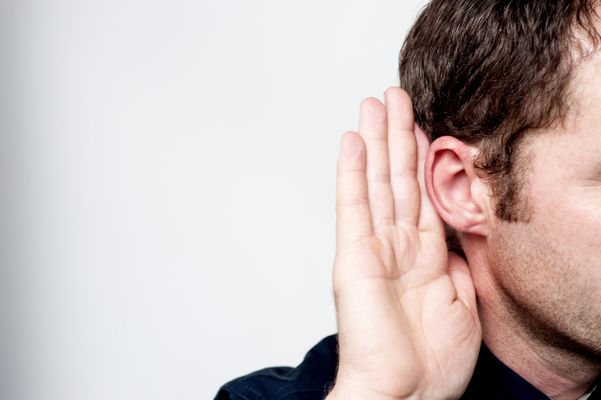19.1.14
The Riots of 1965–67
The Riots of 1965–67
The Riots of 1965–67
There were major and widespread riots across the US between 1964 and 1968, starting just two weeks after the Civil Rights Act was passed.


The riots
The riots
- There were 329 major riots in 257 cities between 1964 and 1968, starting just two weeks after the Civil Rights Act was passed.
- They resulted in 220 deaths and 52,629 arrests.


Causes of the 65-67 riots
Causes of the 65-67 riots
- They were partially a reaction to ghetto conditions, and police discrimination against black people in the North.
- The first was triggered when a policeman shot a young black man, and led to other cities in the North.
- The Watts riots in LA occurred after a black man was wrongfully arrested.


Long term problems
Long term problems
- The riots were also a protest against long term problems such as:
- City officials ignoring complaints from black neighbourhoods.
- Unemployment and low wages.
- Poor housing and living conditions.
- Poor education.
- Violence in Mississippi and Selma.


Participants and victims
Participants and victims
- 80% of rioters were young black men, who attacked discriminating white businesses but not white people.
- In fact, more black people died during the riots than whites.
The Kerner Report
The Kerner Report
President Johnson started to put more money into improving the ghettos and set up an enquiry into the riots of 1965–67.


The ghettos
The ghettos
- The riots drew attention to the problems in the ghettos.
- Martin Luther King visited Watts and started an SCLC campaign in the North.
- President Johnson started to put more money into improving the ghettos and set up an enquiry into the riots.


The Kerner Report
The Kerner Report
- The Kerner Report said that:
- The riots were caused by poor ghetto conditions, and that white officials had failed to fix the problems there.
- White officials needed to involve black communities in decisions and listen to their issues.


The Kerner Report contents
The Kerner Report contents
- Policing should be changed to stop police violence and support the community.
- Federal money should be spent on improving conditions not on police training which just gave them more weapons to deal with riots in a violent manner.
- The media had over-exaggerated the extent and the violence of the riots, which hadn’t helped.
1The Medieval World: 450-1450 AD
1.1Anglo-Saxon England
1.2The Contest for the English Throne
1.3Conquering the Holy Land, 10-96-1396 AD
1.3.1Origins of the Crusades
1.3.2Early Disputes Over the Holy Land
1.3.3The First Crusade
1.3.4Course of the Crusades
1.3.5Reasons for the Crusades
1.3.6Military Impact of the Crusades
1.3.7Scientific Impact of the Crusades
1.3.8Domestic Impact of the Crusades
1.3.9Christian Interpretation of the Crusades
1.3.10Muslim Interpretation of the Crusades
1.3.11End of Topic Test - The Crusades
1.3.12End of Topic Test - The Crusades 2
1.4King John
1.5The Magna Carta & Parliament
1.5.1The Magna Carta
1.5.2Lasting Impact of the Magna Carta
1.5.3The Magna Carta & the Monarchy
1.5.4The Magna Carta & Democracy
1.5.5Contemporary Interpretations of King John
1.5.6Later Interpretations of King John
1.5.7Modern Interpretations of King John
1.5.8End of Topic Test - The Magna Carta
1.5.9End of Topic Test - Lasting Impact of Magna Carta
1.5.10End of Topic Test - Interpretations of King John
1.6The Black Death
2Worldviews
2.1Time & History
2.2The Christian World
3The Empire of Mali
4The Renaissance & Reformations, 1500-1598 AD
4.1The Renaissance
4.2The Reformation
5The British Empire, 1583-1960 AD
5.1The British Empire
5.2North America
5.3The Caribbean
5.4India
5.5Australia
6The Peasants' Revolt
6.1Causes of the Peasants' Revolt
6.2Course of the Revolt
6.3Consequences of the Peasants Revolt
7Religion in the Middle Ages
8Slavery, 1619-1833 AD
8.1Slavery
8.1.1Beginnings of the Slave Trade
8.1.2The Triangular Slave Trade
8.1.3Impact of the Slave Trade on Britain
8.1.4Slave Trade & World Impacts
8.1.5Reasons Attitudes to the Slave Trade Changed
8.1.6The Committee for the Abolition
8.1.7The Abolition of Slavery: Key Events
8.1.8Interpretations of the Slave Trade
8.1.9Interpretations of Abolition
8.1.10End of Topic Test - Slavery
9The English Civil War, 1642-1660
9.1Charles I
9.2Why Did the Civil War Break Out?
9.3The Civil War
9.4The Commonwealth
10The Industrial Revolution, 1750-1840
11US Independence, 1775-1783
12The French Revolution, 1789-1815
12.1The Revolution
13The British Empire, 1857–1930
13.1The British Empire
13.1.1Empires over Time
13.1.2Expansion into Africa
13.1.3Motives for Expansion into Africa
13.1.4History of Egypt
13.1.5The British Empire & India
13.1.6The Bengal Famine, Indian Mutiny & Indian Economy
13.1.7International Relations with other Powers
13.1.8Scramble for Africa
13.1.9The Berlin Conference & Assessment
13.1.10Native Policy in Colonies
13.1.11Relations & Business with Iran
13.1.12Iran After WW2
13.1.13Impact of WW1
13.1.14Indian & African Support for the British in WW1
13.1.15Palestine & the Middle East
13.1.16Britain & its African & Middle Eastern Colonies
14Suffrage
14.1Suffrage
14.2The Campaign for Women’s Suffrage
14.3Women’s Enfranchisement
15World War 1, 1914-1918
15.1Causes of WW1
15.2Outbreak & Early War
15.3The War of Attrition
15.4Forgotten Armies of WWI
16The Inter-War Years, 1919-1939
16.1Increasing Support for Fascists
16.2Control of People in Totalitarian States
16.2.1The German Police State
16.2.2The Gestapo & SS
16.2.3The Success of Repression
16.2.4The USSR Police State
16.2.5Employment in Germany
16.2.6Economic Policies in Germany
16.2.7Nazi Economic Policy - Costs & Benefits
16.2.8Economic Policies in USSR
16.2.9The Jews & Anti-Semitism
16.2.10The Persecution of the Jews - The Holocaust
16.2.11Cult of Personality in the USSR
16.3The Rise of Dictators
17World War 2, 1939-1945
17.1World War 2
17.1.1Long Term Factors of WW2
17.1.2Hitler & the Nazis
17.1.3Appeasement
17.1.4The Phoney War
17.1.5The Blitzkrieg
17.1.6The Battle of Britain
17.1.7German Invasion of the USSR
17.1.8US Entrance into WW2
17.1.9Allied Victory
17.1.10Churchill
17.1.11Anti-Semitism
17.1.12The Holocaust
17.1.13Outcome of WW2
17.1.14Interpretations of the Causes of WW2
17.1.15Interpretation of US Entrance
17.1.16Interpretation of USSR Entrance
18The Cold War, 1947-1962
18.1The Cold War
18.1.1Introduction to Key Terms of the Cold War
18.1.2Ideological Differences Between the Superpowers
18.1.3The Yalta & Potsdam Conferences - 1945 AD
18.1.4Satellite States
18.1.5The Atomic Bomb
18.1.6NATO
18.1.7Containment
18.1.8The Marshall Plan
18.1.9The Berlin Crisis
18.1.10The Berlin Airlift
18.1.11The Refugee Problem in Berlin
18.1.12The Berlin Wall
18.1.13The Arms Race
18.1.14The Space Race
18.1.15Relations with Cuba
18.1.16The Cuban Missile Crisis
18.1.17Consequences of the Cuban Missile Crisis
19Civil Rights in the USA, 1954-1975
19.1Segregation in the USA
19.1.1Segregation & Discrimination
19.1.2Voting
19.1.3Brown v. Topeka
19.1.4Little Rock High School
19.1.5Rosa Parks
19.1.6Martin Luther King Jr.
19.1.7Opposition to the Civil Rights Movement
19.1.8The Murder of Emmett Till
19.1.9The James Meredith Case
19.1.10Peaceful Protests in the 1960s
19.1.11Freedom Summer & Mississippi Murders
19.1.12Civil & Voting Rights Acts
19.1.13Presidents Kennedy & Johnson
19.1.14The Riots of 1965–67
19.1.15The Kerner Report
19.1.16Martin Luther King's Campaign
19.1.17Assassination of Martin Luther King
19.1.18Consequences of Assassination of MLK
Jump to other topics
1The Medieval World: 450-1450 AD
1.1Anglo-Saxon England
1.2The Contest for the English Throne
1.3Conquering the Holy Land, 10-96-1396 AD
1.3.1Origins of the Crusades
1.3.2Early Disputes Over the Holy Land
1.3.3The First Crusade
1.3.4Course of the Crusades
1.3.5Reasons for the Crusades
1.3.6Military Impact of the Crusades
1.3.7Scientific Impact of the Crusades
1.3.8Domestic Impact of the Crusades
1.3.9Christian Interpretation of the Crusades
1.3.10Muslim Interpretation of the Crusades
1.3.11End of Topic Test - The Crusades
1.3.12End of Topic Test - The Crusades 2
1.4King John
1.5The Magna Carta & Parliament
1.5.1The Magna Carta
1.5.2Lasting Impact of the Magna Carta
1.5.3The Magna Carta & the Monarchy
1.5.4The Magna Carta & Democracy
1.5.5Contemporary Interpretations of King John
1.5.6Later Interpretations of King John
1.5.7Modern Interpretations of King John
1.5.8End of Topic Test - The Magna Carta
1.5.9End of Topic Test - Lasting Impact of Magna Carta
1.5.10End of Topic Test - Interpretations of King John
1.6The Black Death
2Worldviews
2.1Time & History
2.2The Christian World
3The Empire of Mali
4The Renaissance & Reformations, 1500-1598 AD
4.1The Renaissance
4.2The Reformation
5The British Empire, 1583-1960 AD
5.1The British Empire
5.2North America
5.3The Caribbean
5.4India
5.5Australia
6The Peasants' Revolt
6.1Causes of the Peasants' Revolt
6.2Course of the Revolt
6.3Consequences of the Peasants Revolt
7Religion in the Middle Ages
8Slavery, 1619-1833 AD
8.1Slavery
8.1.1Beginnings of the Slave Trade
8.1.2The Triangular Slave Trade
8.1.3Impact of the Slave Trade on Britain
8.1.4Slave Trade & World Impacts
8.1.5Reasons Attitudes to the Slave Trade Changed
8.1.6The Committee for the Abolition
8.1.7The Abolition of Slavery: Key Events
8.1.8Interpretations of the Slave Trade
8.1.9Interpretations of Abolition
8.1.10End of Topic Test - Slavery
9The English Civil War, 1642-1660
9.1Charles I
9.2Why Did the Civil War Break Out?
9.3The Civil War
9.4The Commonwealth
10The Industrial Revolution, 1750-1840
11US Independence, 1775-1783
12The French Revolution, 1789-1815
12.1The Revolution
13The British Empire, 1857–1930
13.1The British Empire
13.1.1Empires over Time
13.1.2Expansion into Africa
13.1.3Motives for Expansion into Africa
13.1.4History of Egypt
13.1.5The British Empire & India
13.1.6The Bengal Famine, Indian Mutiny & Indian Economy
13.1.7International Relations with other Powers
13.1.8Scramble for Africa
13.1.9The Berlin Conference & Assessment
13.1.10Native Policy in Colonies
13.1.11Relations & Business with Iran
13.1.12Iran After WW2
13.1.13Impact of WW1
13.1.14Indian & African Support for the British in WW1
13.1.15Palestine & the Middle East
13.1.16Britain & its African & Middle Eastern Colonies
14Suffrage
14.1Suffrage
14.2The Campaign for Women’s Suffrage
14.3Women’s Enfranchisement
15World War 1, 1914-1918
15.1Causes of WW1
15.2Outbreak & Early War
15.3The War of Attrition
15.4Forgotten Armies of WWI
16The Inter-War Years, 1919-1939
16.1Increasing Support for Fascists
16.2Control of People in Totalitarian States
16.2.1The German Police State
16.2.2The Gestapo & SS
16.2.3The Success of Repression
16.2.4The USSR Police State
16.2.5Employment in Germany
16.2.6Economic Policies in Germany
16.2.7Nazi Economic Policy - Costs & Benefits
16.2.8Economic Policies in USSR
16.2.9The Jews & Anti-Semitism
16.2.10The Persecution of the Jews - The Holocaust
16.2.11Cult of Personality in the USSR
16.3The Rise of Dictators
17World War 2, 1939-1945
17.1World War 2
17.1.1Long Term Factors of WW2
17.1.2Hitler & the Nazis
17.1.3Appeasement
17.1.4The Phoney War
17.1.5The Blitzkrieg
17.1.6The Battle of Britain
17.1.7German Invasion of the USSR
17.1.8US Entrance into WW2
17.1.9Allied Victory
17.1.10Churchill
17.1.11Anti-Semitism
17.1.12The Holocaust
17.1.13Outcome of WW2
17.1.14Interpretations of the Causes of WW2
17.1.15Interpretation of US Entrance
17.1.16Interpretation of USSR Entrance
18The Cold War, 1947-1962
18.1The Cold War
18.1.1Introduction to Key Terms of the Cold War
18.1.2Ideological Differences Between the Superpowers
18.1.3The Yalta & Potsdam Conferences - 1945 AD
18.1.4Satellite States
18.1.5The Atomic Bomb
18.1.6NATO
18.1.7Containment
18.1.8The Marshall Plan
18.1.9The Berlin Crisis
18.1.10The Berlin Airlift
18.1.11The Refugee Problem in Berlin
18.1.12The Berlin Wall
18.1.13The Arms Race
18.1.14The Space Race
18.1.15Relations with Cuba
18.1.16The Cuban Missile Crisis
18.1.17Consequences of the Cuban Missile Crisis
19Civil Rights in the USA, 1954-1975
19.1Segregation in the USA
19.1.1Segregation & Discrimination
19.1.2Voting
19.1.3Brown v. Topeka
19.1.4Little Rock High School
19.1.5Rosa Parks
19.1.6Martin Luther King Jr.
19.1.7Opposition to the Civil Rights Movement
19.1.8The Murder of Emmett Till
19.1.9The James Meredith Case
19.1.10Peaceful Protests in the 1960s
19.1.11Freedom Summer & Mississippi Murders
19.1.12Civil & Voting Rights Acts
19.1.13Presidents Kennedy & Johnson
19.1.14The Riots of 1965–67
19.1.15The Kerner Report
19.1.16Martin Luther King's Campaign
19.1.17Assassination of Martin Luther King
19.1.18Consequences of Assassination of MLK

Unlock your full potential with GoStudent tutoring
Affordable 1:1 tutoring from the comfort of your home
Tutors are matched to your specific learning needs
30+ school subjects covered